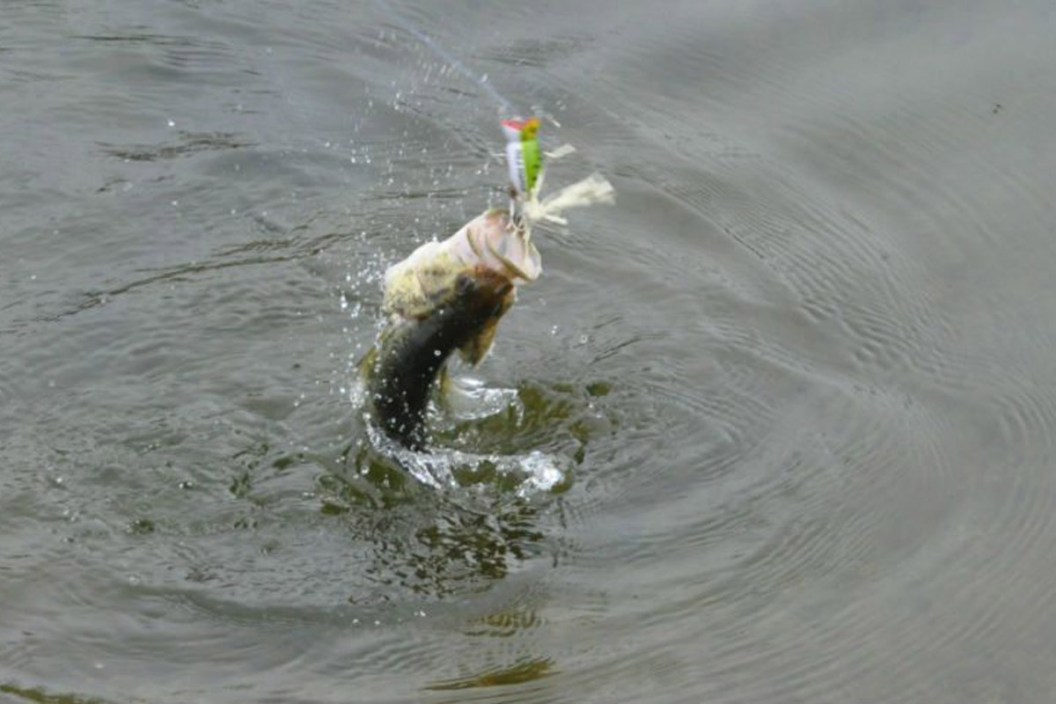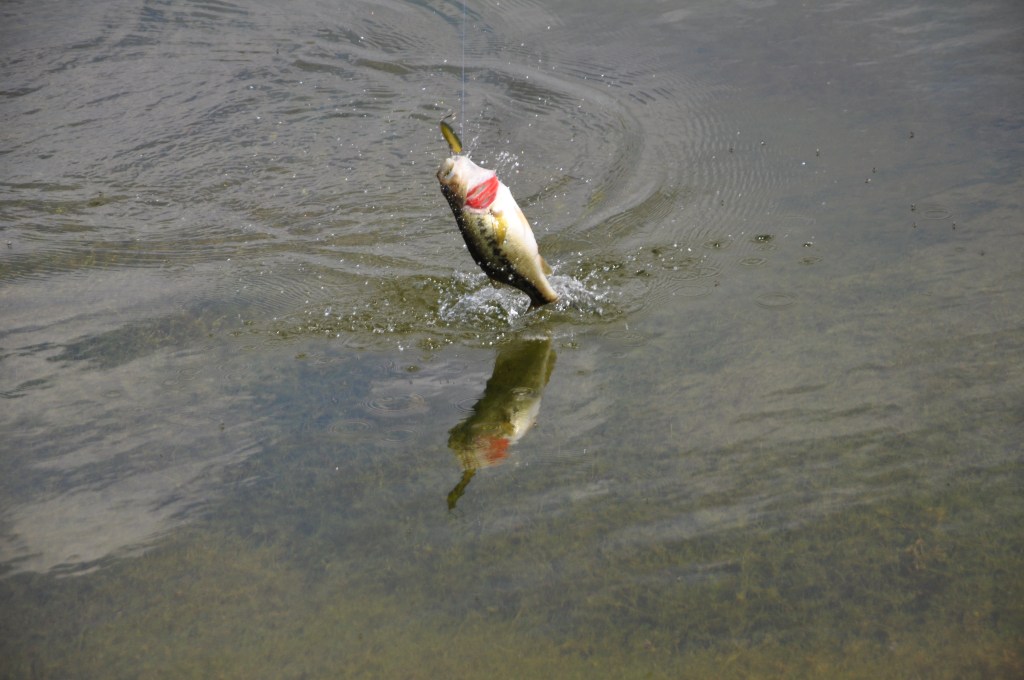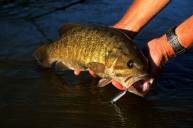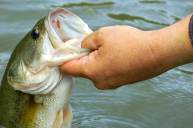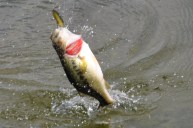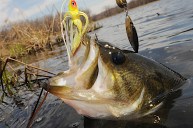Back in 1995, I was 10 years old and my family had just moved into a new house that included an old farm pond where a barn previously stood. For a kid who had just realized a newfound obsession with bass fishing, this little splash of water was nothing less than a dream come true, even if the pond was stocked with nothing but bluegills at the time.
Between the countless hours I spent fishing that pond and the additional time spent at other ponds around southwest Michigan, I've become extremely accustomed to smaller bodies of water, learning all the differences between targeting smaller and larger bodies of water.
Strangely enough, however, most fishing magazines and books don't give a whole lot of attention to fishing tactics for smaller bodies of water such as ponds. It's a real shame they don't, too, because small bodies of water don't necessarily mean small bass. In fact, a quick look at the list of state records for largemouth bass reveals that many actually came out of ponds.
Here are a few of the things I've learned through my own experience over the years.
1. Pond bass are different than their lake relatives
On big lakes and rivers, you often have to use specific lures or techniques to catch bass, but it's a completely different story when fishing ponds. Water temperatures will be wildly different than the local lake, as ponds warm and cool much faster, resulting in some pretty erratic fish behavior. For example, a pond will warm up a lot faster after a cold front, making fish much easier to catch much sooner.
So, while pond bass are striking everything you throw at them, you might not be able to buy a bite on the big lake. So, the first thing you need to do is forget everything you know about big lake fishing and learn to adapt to the situation on the fly.
2. Keep a low profile
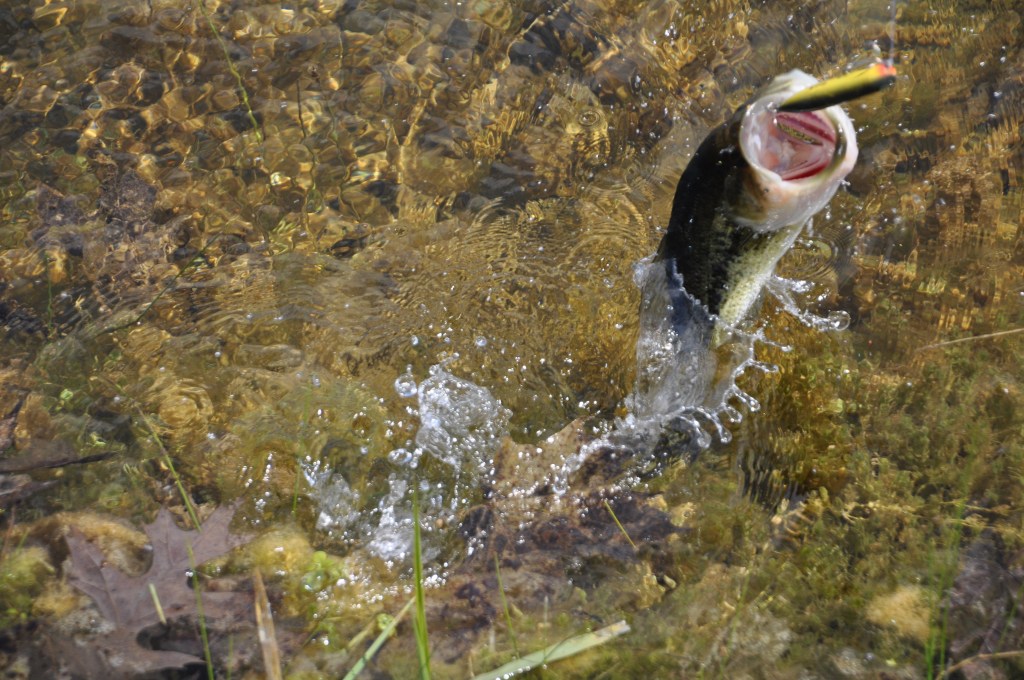
This is one of the biggest mistakes most anglers make with ponds. In a small body of water, it's easy to see the fish, but conversely, they can see you, too! Sometimes I'll crouch down when bank fishing and cast from a kneeling or crouched position. This is especially helpful in ponds that are more pressured.
Bass quickly get used to seeing people on the banks in ponds, but it doesn't make them any less wary. They will know if you're fishing, and larger fish are more likely to bite if they don't know you're there or if it's harder for them to discern what you're doing.
This reality isn't exclusive to bass, either. My parents' pond held a 13-pound channel catfish that became more wary over the years. The last time I caught it, I was only able to catch it after I crawled 50 yards down to the pond's edge and threw my bait in from a sitting position. In any other situation, he was just too skittish to entice with standard fishing practices.
3. Think shallow
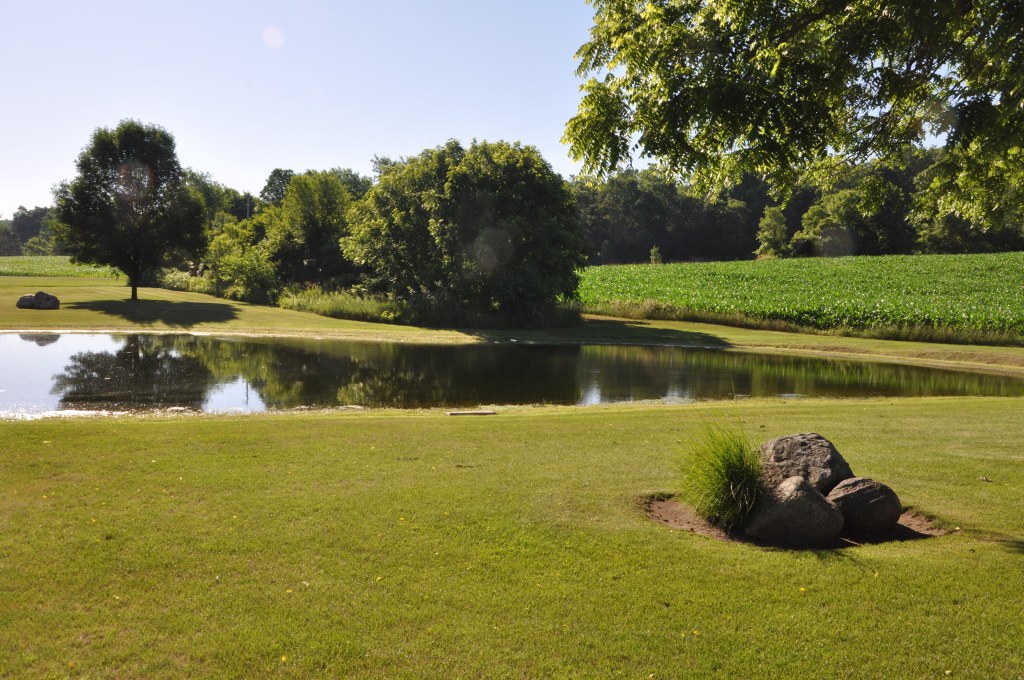
Most ponds aren't that deep. I've encountered very few with a depth deeper than 15 feet. As a result, some tactics have to be modified to fit a smaller body of water. I usually rig plastic worms with a single worm hook in Texas- or Carolina-rig style fashion. In most of the bodies of water I fish, I don't use weights because it just buries the worm in the weeds. You'll lose some casting distance fishing like this, and you'll likely need to choose slower lures that won't sink so fast, but you'll avoid so many snags. The best thing to do is experiment and see what works for each fishery.
Additionally, because of the shallow water, bottom fishing lures such as jigs aren't all that effective in most ponds. If you're going to use diving lures like crankbaits, make sure you buy floating ones or you'll constantly be snagging on the bottom. Most pond bass won't spend any time at depth in the summer, anyways, so deep-water techniques shouldn't be a top priority, but shallow-running cranks can be wildly effective at times.
But, where divers can be tricky in shallow water, topwater lures typically shine. It's easy to cover an entire pond in short order with a topwater lure. Because the water is so shallow, the bass will have to be blind to miss seeing your lure thrashing across the surface.
4. Be aggressive
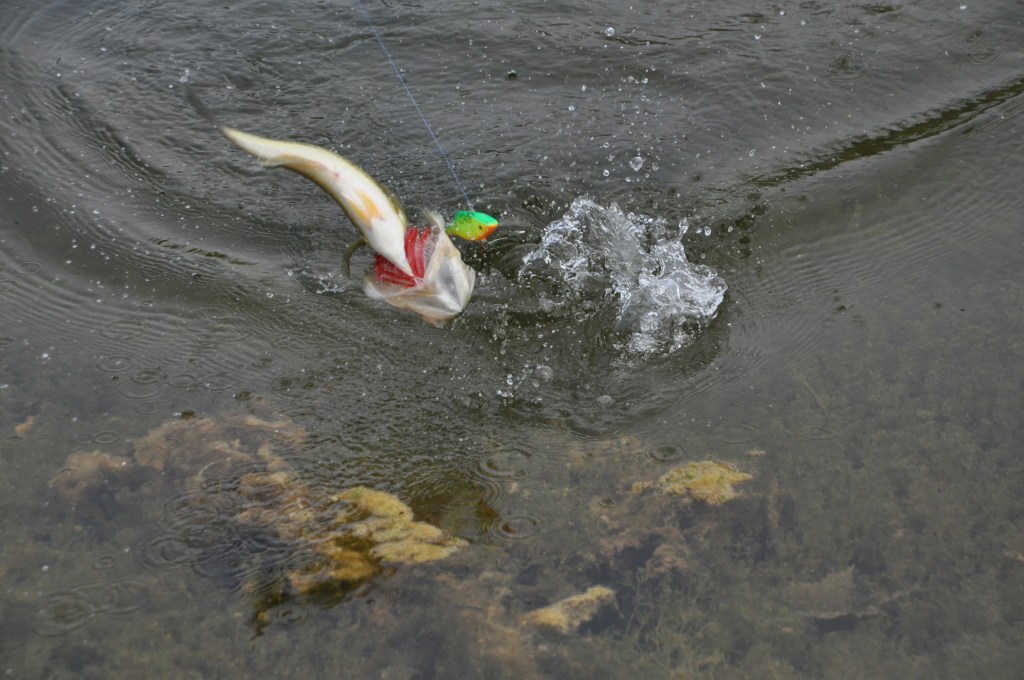
I've generally found my approach can be much more aggressive while pond fishing than it can in lakes. I suppose you could attribute this to less fishing pressure, but I've also come to believe an increased competition for food plays just as much of a factor. The smaller body of water, the less food there is available for fish.
A low profile and an aggressive lure presentation with a flashy, noisy action can pay dividends.
5. Isolation means opportunity
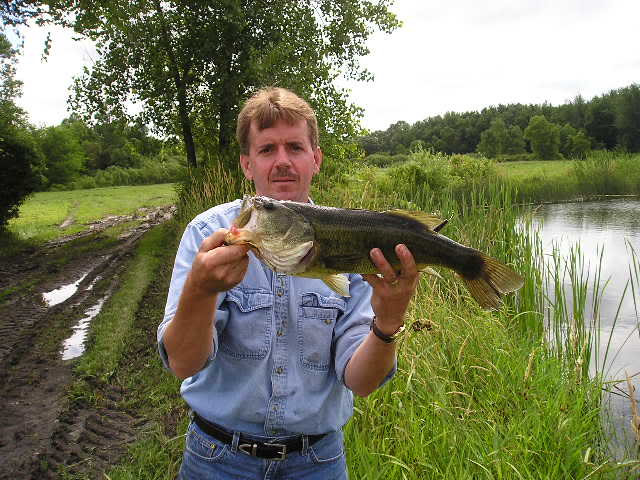
Ponds are unique for bass fishing in that many are not heavily fished. If you can find an isolated pond with little pressure, you'll probably find it's a gold mine. It also means you can be even more creative in how you fish it, and fish will still bite.
A bass living in a public lake has seen just about every single lure under the sun, including lures intended for other species. But a bass that's been living in an under-fished pond all its life will be totally ignorant of what lures are out there. This means you can catch them on literally almost anything, and, it means you can practice with lures you haven't had an opportunity to master yet.
I've caught pond bass on lures that are colored like yellow perch or rainbow trout even though these bass have never seen a perch or trout in their lives. The fish probably strike because a predator response is instinctual, but it could also be simply because it's something they've never seen before.
6. Be creative
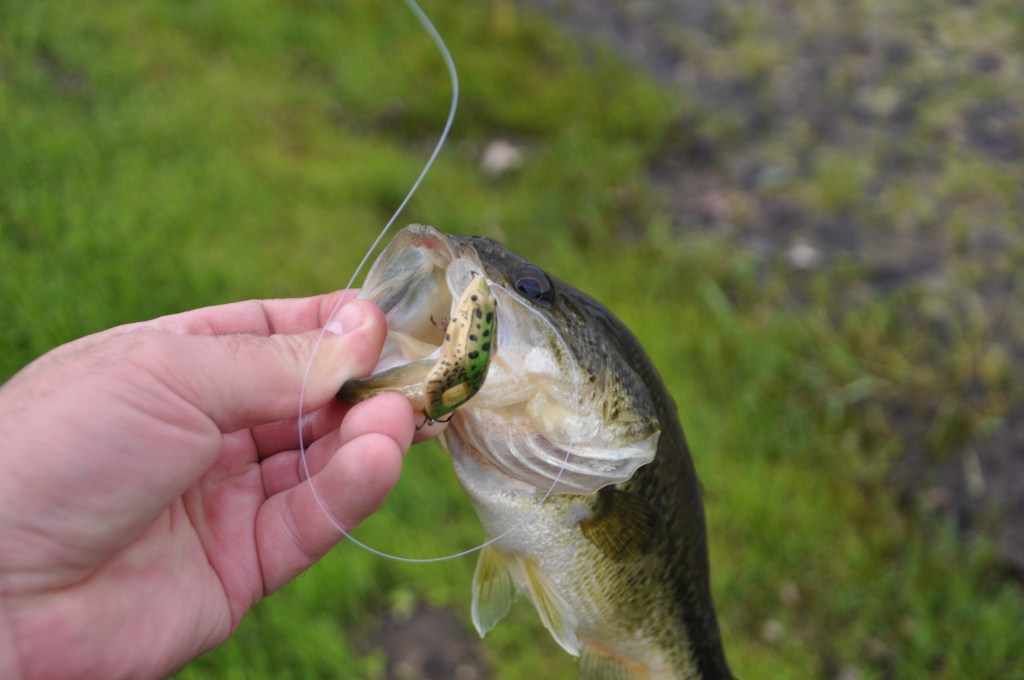
Keep in mind the more opportunistic nature of bass in ponds and small lakes. Lure colors that aren't working on the big water may be dynamite on small water. It's also worth having lures resembling insects, rodents, or other small amphibians that bass may be forced to prey since their options may be limited.
Don't be afraid to throw lures meant for other species or lures that seem too large, either, as I've spent an entire afternoon nailing bass after bass with a large zara spook topwater even though half the bass here in the more northern states could never swallow something that large no matter how big they grow.
Many fisherman scoff at the idea of fishing small waters, but they can offer some of the finest bass fishing you can find. And, if you're looking for record-class fish, finding the right body of water at the right time can result in some of the largest bass around. Find a pond and give it a try this season, you'll find it's a lot of fun!
All images via Travis Smola.
